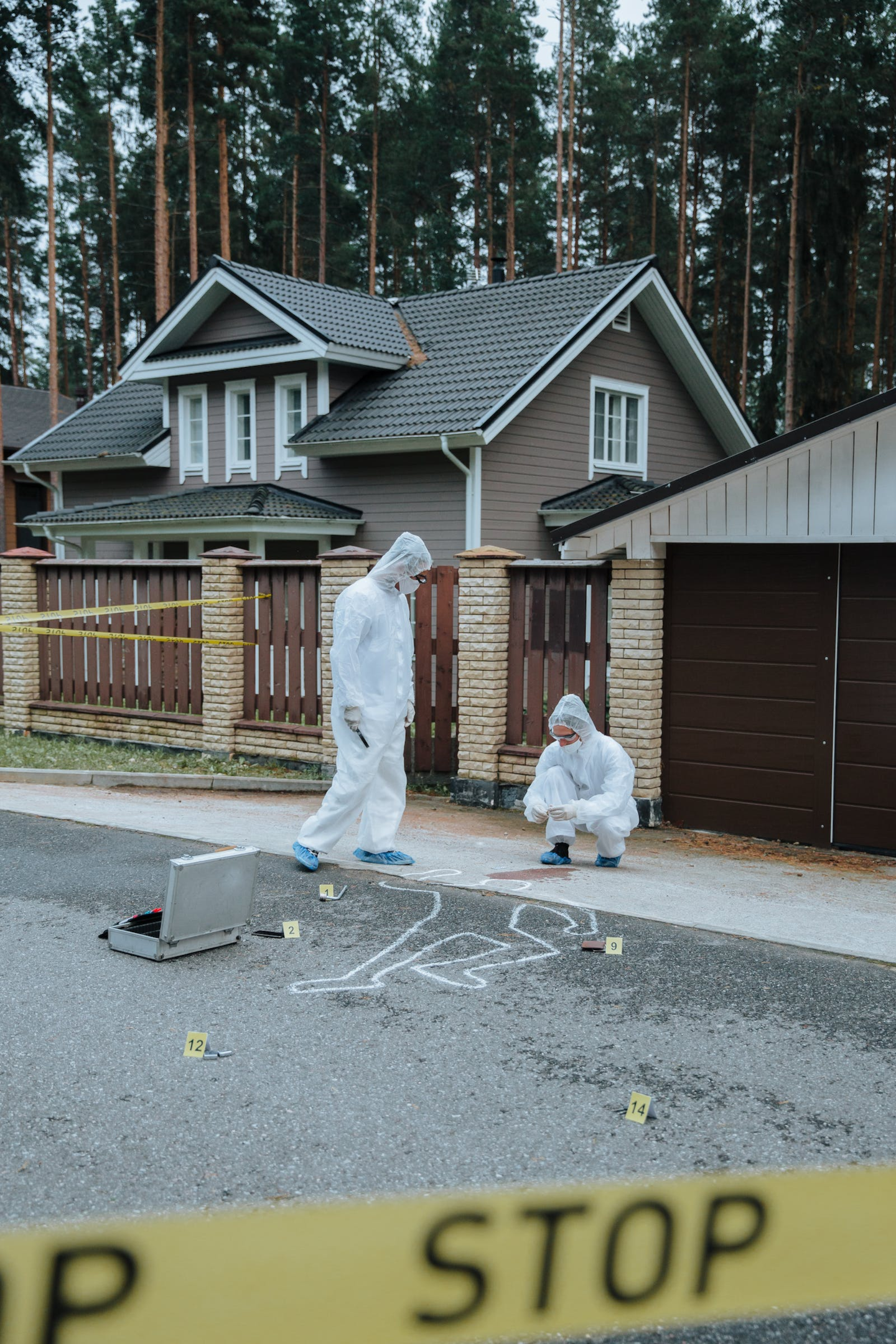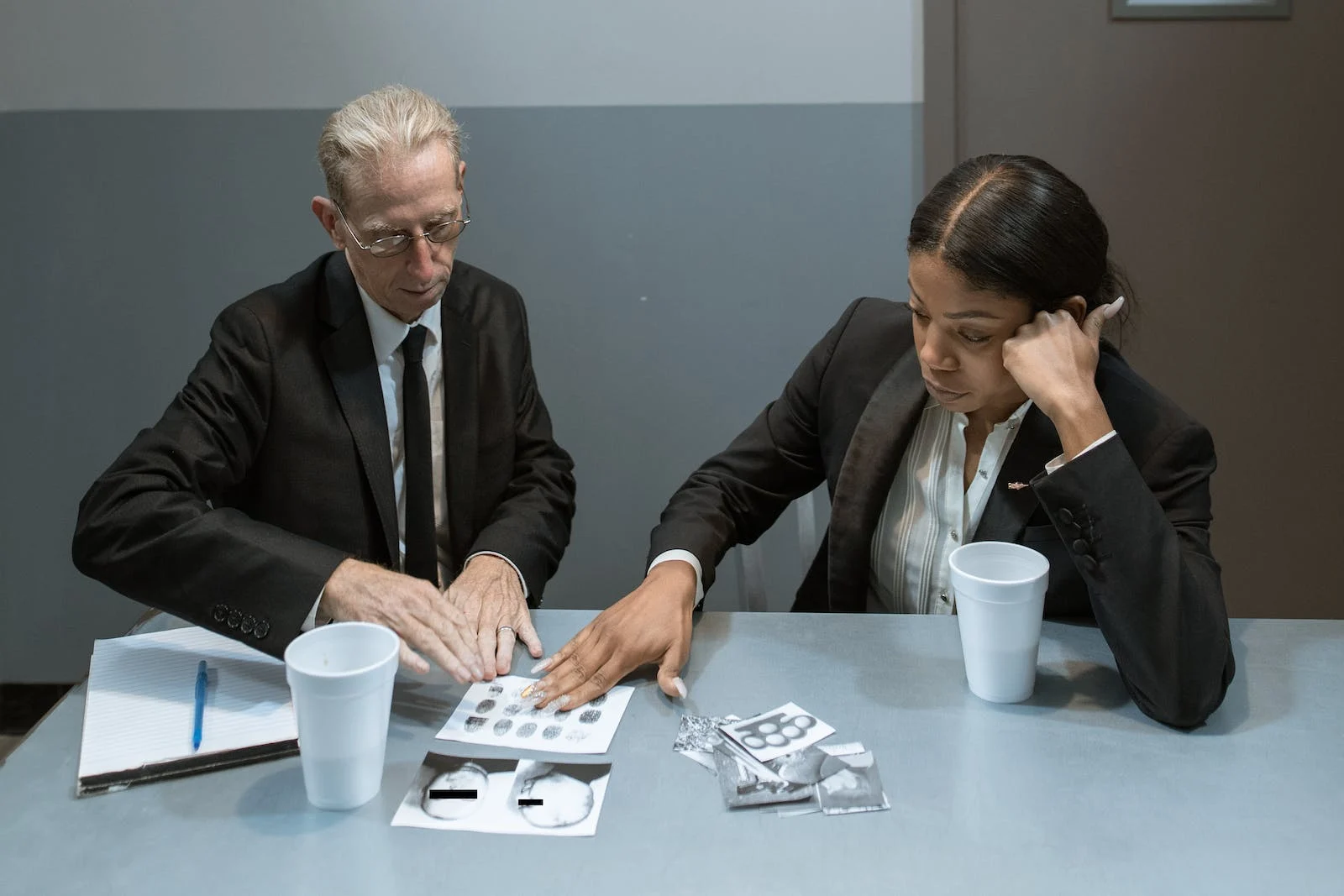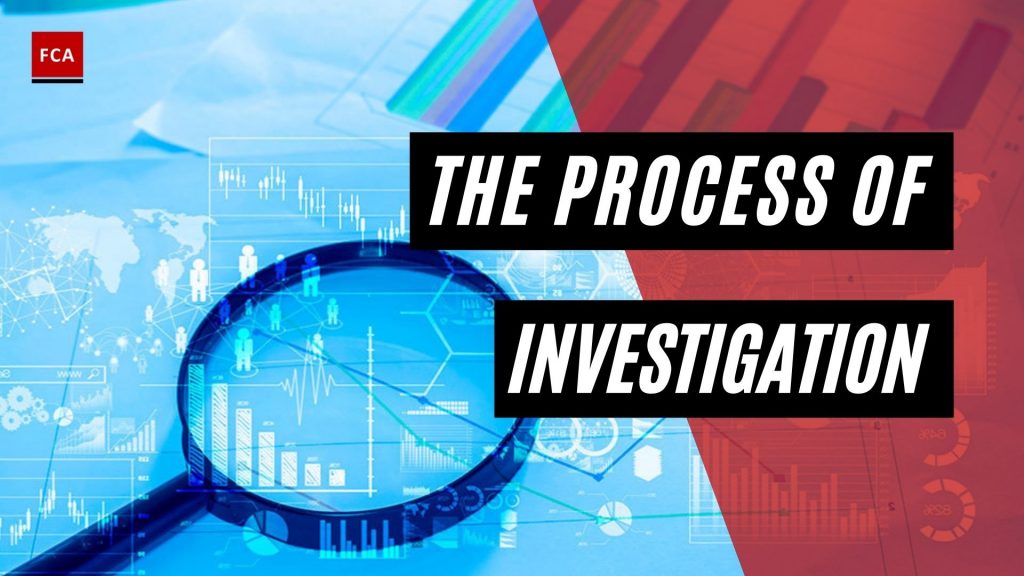Have you ever been captivated by a mystery novel or crime thriller, marveling at the investigator’s ability to solve seemingly unsolvable cases? The world of criminal investigations is just as complex and fascinating as fiction, relying on a range of techniques and strategies to uncover the truth and bring justice to light. In this article, we’ll delve into the various aspects of the investigation process, from the vital role of physical evidence and the dynamics of investigation teams to the intricacies of financial investigations and the importance of learning from past incidents.
Key Takeaways
Criminal investigation is a process of gathering and evaluating evidence to identify suspects and establish reasonable grounds for suspicion.
It involves techniques such as physical evidence collection, data analysis, theory development, suspect identification, adapting to changing circumstances and securing the crime scene.
An effective investigation team requires reliable members with diverse skillsets who can work together through open communication & prompt resolution of conflicts.
The Role of Physical Evidence in Investigations

Physical evidence is the backbone of criminal investigations, providing objective and dependable data that can corroborate or refute investigative theories. As the saying goes, “the proof is in the pudding,” and in the world of criminal investigations, the proof is in the relevant evidence.
Maintaining the integrity and usefulness of evidence in the investigation requires understanding the specifics of the case and familiarizing oneself with all permissible investigative measures, including the management and analysis of gathered evidence. Moreover, investigators must be adaptable to changing circumstances, as sticking to only flexible general rules may not be sufficient in every case. Proper acquisition and handling of evidence are crucial for a successful forensic investigation, ultimately building a strong case against the suspect with the evidence obtained.
Collection and Preservation
In criminal investigations, even a single error in the collection and preservation of evidence can determine the outcome of a case. Adhering to the correct protocols for collecting and preserving evidence, such as documenting the scene, gathering and securing the evidence, and preserving the chain of custody, is vital for forming reasonable grounds for suspicion or belief in the investigative process. It is crucial to preserve evidence effectively to ensure a fair and accurate outcome.
The procedure for gathering physical evidence must be thorough. It includes:
Documenting the scene
Recognizing and safeguarding the evidence
Obtaining trace materials and DNA evidence
Properly preserving and transporting the evidence.
Adherence to these guidelines helps investigators maintain the integrity and admissibility of evidence in court, which is crucial for the successful resolution of the case.
Analyzing Evidence
Once the evidence is collected and preserved, it’s time for the investigation team to roll up their sleeves and dive into the world of analysis. Techniques employed to examine and interpret physical evidence include microscopy, chromatography, and DNA analysis. The primary components of an investigation involve gathering documents and administering interviews, with covert surveillance playing a key role in obtaining a variety of data, including location, activities, health status, and potential evidence for legal proceedings.
As the investigation unfolds, newly revealed information may call for multiple interviews and adjustments to investigative strategies. Hence, investigators must keep a clear grasp of the purpose of the interviews and overarching investigation objectives.
Presenting Evidence in Court
After all the hard work of collecting and analyzing evidence, the final hurdle is presenting the evidence in court. To do this effectively, investigators must:
Maintain an accurate record of all activities related to the investigation
Document and authenticate the chain of evidence
Employ strategies such as organizing the evidence, utilizing visual aids, and preparing witnesses
Presenting physical evidence in court encompasses labeling the evidence, presenting it to witnesses, having witnesses offer it, and securing its admissibility based on the judge’s ruling. Ultimately, the successful presentation of evidence in court hinges on the investigator’s ability to clearly and convincingly demonstrate its relevance and reliability.
Investigation Team Dynamics

Behind every successful criminal investigation, there is a skilled and cohesive investigation team. The role of an investigation team is to:
Gather pertinent facts, data, and evidence
Establish the chronological order of events that transpired leading up to a particular incident or crime
Have a team leader who directs the investigation and liaises with stakeholders and external parties
Comprise specialists with specialized insights and experience in investigating specific types of incidents or crimes
Successful investigations hinge on:
Effective communication and coordination
Role understanding and collaborative efforts among team members
Resolving conflicts within the team
Maintaining focus on the investigation’s objectives
Ensuring a swift and efficient conduct of the investigation.
Assembling the Team
Assembling a skilled investigation team is like putting together a puzzle – each piece must fit together perfectly to create a complete picture. The success of an investigation depends on the diversity of skills and expertise within the team. To form an investigation team, individuals with the requisite skills, expertise, and qualifications must be carefully selected, ensuring that they can provide their unique perspectives and expertise to the investigation process.
Team members should possess reliability, trustworthiness, and the ability to work together to acquire data and evaluate evidence. In some cases, outside counsel or experts may be engaged to provide specialized knowledge or guidance during the investigation.
Communication and Coordination
A well-oiled machine runs smoothly and efficiently, and the same applies to an investigation team. Clear and effective communication among team members is essential to ensure a successful investigation process. The role of communication and coordination in investigations involves keeping all team members up-to-date and exchanging information in an organized and expeditious manner. This can result in enhanced collaboration, more effective decision-making, and augmented efficiency.
Examples of effective communication and coordination in investigations include:
Utilizing a shared document system to store and share information
Holding regular team meetings to discuss progress
Employing a common language to communicate.
Resolving Conflicts
In any team, conflicts can arise due to divergent perspectives, misunderstandings, and inadequate communication. Open communication is essential when addressing conflicts within the team, as it facilitates the exchange of ideas and perspectives, ensuring that all team members are aligned. Addressing issues promptly is also crucial, as it prevents the situation from worsening and facilitates a more effective resolution. In some cases, considering the complexity of the situation or the team’s inability to reach a resolution, it may be prudent to seek outside assistance when addressing conflicts within the team.
The Investigative Thinking Process

The investigative thinking process is the beating heart of criminal investigations, pumping life into the collection and analysis of data, the development of theories, and the identification of suspects. Like a mental map guiding investigators through the twists and turns of a case, the investigative thinking process encompasses:
Data collection and analysis
Theory development and validation
Suspect identification
Adapting to changing circumstances.
The ultimate aim of investigative thinking is to provide sufficient evidence to substantiate a belief, identify potential suspects, and lead to an arrest and formal charges. This process is a mental exercise that requires investigators to critically evaluate the evidence at hand, sift through the data, and draw meaningful conclusions. It’s a journey through the maze of information, where each turn could lead to a new discovery or a dead end. The goal is not just to find the truth, but to meticulously construct a case that can withstand the scrutiny of the legal system. It’s a delicate balancing act of being thorough yet efficient, skeptical yet open-minded, and persistent yet adaptable. Every piece of evidence, every testimony, and every clue is a part of the puzzle that can lead to the resolution of the crime.
Data Collection and Analysis
Data collection and analysis form the foundation of the investigative thinking process. This involves gathering and examining information from various sources, such as witnesses, documents, and physical evidence, to support investigative theories. The procedure for data collection and analysis entails gathering data from multiple sources and evaluating it to validate investigative theories. Data collection and analysis are essential for criminal investigations, as they assist in identifying and analyzing evidence, formulating investigative theories, and constructing a case against a suspect.
Examples of data collection and analysis include gathering and analyzing physical evidence, interviewing witnesses, and analyzing financial records.
Developing Theories and Identifying Suspects
Once data is collected and analyzed, it’s time to put on the detective hat and develop theories to explain the evidence. Formulating theories and pinpointing potential suspects in the investigative reasoning process involves analyzing the collected information and constructing hypotheses based on the evidence.
The analysis of evidence is critical in the investigative thought process, as it facilitates the recognition of patterns and correlations between distinct pieces of evidence, which can then be utilized to devise theories and pinpoint potential suspects. The procedure for identifying suspects involves collecting and examining evidence, interviewing witnesses, and performing background checks. Once a suspect is identified, additional evidence must be obtained and validated to ascertain the suspect’s participation in the offense.
Adapting to Changing Circumstances
As the saying goes, “The only constant in life is change,” and this holds true for criminal investigations as well. Adapting to changing circumstances is crucial for investigators, as it allows them to:
Adjust their investigative strategies and theories when new information is obtained
Modify behavior or strategy to better suit the situation
Improve the effectiveness of investigations
Achieve better outcomes
Adapting to changing circumstances involves:
Accepting the shift
Maintaining a positive attitude
Gaining a different outlook
Concentrating on what can be controlled
Acknowledging the alteration
Making preparations when feasible
Calming the mind
Being compassionate to oneself
Conversing about it.
Incident Investigation Procedures

Conducting a thorough and effective criminal investigation involves following a series of steps and procedures. These include securing the crime scene, collecting data and questioning witnesses, and preparing investigation reports.
By following such procedures, investigators can ensure that they are conducting a comprehensive and successful criminal investigation that leads to the identification of the perpetrator and the collection of sufficient evidence to support legal proceedings in cases of criminal incidents.
Securing the Crime Scene
Establishing a secure perimeter around the crime scene is the first and most crucial step in any criminal investigation. Securing the crime scene serves to safeguard evidence and ensure safety. This involves several steps, such as:
Officer safety
Clearing the scene
Documenting movements
Establishing security
Planning and communicating
Conducting a primary survey
Searching for evidence
Securing and collecting evidence.
By following these steps, investigators can guarantee the integrity and admissibility of evidence in court, ultimately contributing to the successful resolution of the case.
Gathering Information and Interviewing Witnesses
Gathering information and interviewing witnesses play a vital role in criminal investigations. Collecting information from witnesses, documents, and other sources supports the investigation and helps build a strong case against the suspect. This process is a cornerstone of any successful investigation, as it allows investigators to piece together the sequence of events, identify potential suspects, and understand the motives behind the crime. Witnesses can provide first-hand accounts of the crime, offering invaluable insights that may not be apparent from physical evidence alone. Moreover, documents such as financial records, emails, and phone records can help investigators trace the suspect’s activities leading up to the crime. By meticulously collecting and analyzing this information, investigators can construct a compelling narrative that can stand up in court, increasing the chances of a successful prosecution.
Gathering information and conducting interviews involve:
Reviewing relevant case details and witness information
Structuring productive interviews
Asking open-ended questions for comprehensive information acquisition
Careful planning of the interview, creating a comfortable atmosphere for the interviewee, and having a clear understanding of the purpose of the interview are all important for successful interviews. Open-ended queries enable the interviewee to furnish comprehensive details regarding the event or subject under discussion.
Preparing Investigation Reports
After the hard work of collecting and analyzing evidence and interviewing witnesses, it’s time to document the findings and conclusions in an investigation report. Composing an investigation report involves including an introduction, detailing the incident, delineating investigation methods, presenting discoveries, offering analysis, making suggestions, and guaranteeing clarity and comprehensiveness. By creating a clear and organized report, investigators can effectively communicate the results of the investigation and support the prosecution in their pursuit of justice.
Financial Investigations: Uncovering Fraud and Deception

Uncovering financial fraud and deception is a complex and critical aspect of criminal investigations. Financial investigations serve to recognize and record the movement of funds during criminal activities, such as money laundering, terrorist financing, and other serious offenses.
Techniques utilized to detect financial fraud and deception include tracing illicit transactions, examining financial records, and collaborating with regulatory agencies. By employing these techniques, investigators can identify new leads and uncover fraud and deception that might otherwise go unnoticed.
Tracing Illicit Transactions
Tracing illicit transactions is a fundamental aspect of financial investigations. Identifying and tracking potentially suspicious financial transactions helps to uncover criminal activity and track the movement of illegal funds. The direct method of tracing illicit transactions involves examining the subject’s books and records to comprehend the correlation between their receipts and expenditures. The indirect method entails calculating the subject’s net worth by taking into account their liabilities and assets and then analyzing any changes over time.
By tracing illicit transactions, investigators can gain valuable insight into the financial aspects of criminal activities. This process allows them to follow the money trail, revealing patterns of suspicious activity, identifying potential fraud, and exposing the hidden financial networks that criminals use to launder their ill-gotten gains. Tracing illicit transactions is often a complex task that requires a deep understanding of financial systems and regulations. It is a crucial part of financial investigations that can shed light on the scale and nature of criminal operations, helping law enforcement agencies to dismantle criminal organizations and bring those responsible to justice.
Analyzing Financial Records
Examining financial documents and records is another essential component of financial investigations. The procedure for obtaining financial statement information involves obtaining and examining financial documents, including balance sheets, income statements, and cash flow statements. Calculating ratios, such as the debt-to-equity ratio, return on assets, and current ratio, can help evaluate a company’s performance and detect signs of fraud or deception. By analyzing financial records, investigators can identify potential risks and areas of vulnerability, ultimately uncovering financial fraud and deception.
Working with Regulatory Agencies
Collaborating with regulatory agencies is a crucial aspect of financial investigations. Working with regulatory agencies involves:
Rulemaking
A transparent public process
Implementation
Compliance
Rulemaking facilitates the creation, amendment, or repeal of rules and regulations to ensure clarity and consistency. The open public process allows members of the public to voice their opinions on proposed rules and regulations, ensuring that the regulations are equitable and effective. In the implementation and compliance process, investigators must:
Ensure adherence to the regulations
Monitor compliance
Provide guidance and assistance to those impacted by the regulations
Take appropriate enforcement action when necessary
By working with regulatory agencies, investigators can gather information and enforce laws related to financial crimes more effectively.
Learning from Past Incidents

The saying “history repeats itself” holds true in criminal investigations, as lessons learned from past incidents can greatly improve future investigative efforts. By analyzing case studies, implementing corrective actions, and providing training and development opportunities, investigators can enhance their skills and knowledge, ultimately leading to more successful investigations.
Reviewing Case Studies
By examining past investigations, police investigators can identify successful strategies and areas for improvement, ultimately enhancing their ability to solve complex cases. This process, often referred to as “learning from experience,” allows investigators to reflect on their past actions and decisions, identify what worked and what didn’t, and then apply these lessons to future investigations. It’s like a form of self-evaluation, where investigators take a step back and objectively assess their performance. This can lead to the development of new techniques, the refinement of existing strategies, and the avoidance of past mistakes. The ultimate goal of this process is to constantly improve and evolve, ensuring that investigators are always at the top of their game and ready to tackle the next big case with increased efficiency and effectiveness.
Reviewing case studies involves analyzing the evidence, interviewing witnesses, and evaluating the outcomes of the investigation. This process can be challenging due to the complexity of obtaining accurate information, the possibility of bias, and the necessity to consider the context of the investigation. Nevertheless, the insights gained from reviewing case studies can be invaluable in improving future investigative efforts.
Implementing Corrective Actions
Applying lessons learned from past incidents can greatly enhance current and future investigations, as well as help prevent future incidents. Implementing corrective actions involves analyzing the existing system, recognizing areas for enhancement, and devising a plan to tackle those areas.
Conducting a root cause analysis involves:
Pinpointing the issue’s origin
Devising a resolution plan
Implementing corrective actions to address the underlying causes of past failures
Ensuring that they do not recur in future investigations.
Training and Development
Providing ongoing training and development opportunities for investigators is essential to ensuring their continued growth and improvement. The process for identifying and assessing needs involves analyzing the current skills and knowledge of the investigators, determining any gaps therein, and creating a plan to address those gaps. The instructional design is the process of constructing a program for training and development that encompasses the objectives, content, activities, and assessments. The delivery method for the training and development can be provided through in-person, online, or a combination of both.
By participating in training and development, investigators can improve their skills and knowledge, ultimately leading to more effective investigations.
Summary and Conclusion

Throughout this article, we’ve explored the fascinating world of criminal investigations, delving into various techniques and strategies that investigators employ to uncover the truth and bring justice to light. From the critical role of physical evidence to the importance of assembling a skilled investigation team, the investigative thinking process, financial investigations, and the value of learning from past incidents, it is clear that the field of criminal investigations is complex and multifaceted.
By understanding and applying these concepts and techniques, investigators can continue to improve their skills, solve complex cases, and ensure that justice prevails.
Frequently Asked Questions
What is the process of criminal investigation?
The criminal investigation process encompasses multiple key steps, which together form the overall investigative process:
Evidence collection and preservation
Communication and coordination within the investigation team
Utilization of the investigative thinking process for data gathering and analysis
Theory formation
Suspect identification
Adaptation to changing circumstances.
In addition, the process involves securing the crime scene, gathering information and interviewing witnesses, and preparing investigation reports.
What is an investigation in a criminal investigation?

In criminal investigation, the term ‘investigation’ refers to the act of gathering and evaluating evidence to back investigative theories and identify suspects. The purpose of investigation in the criminal justice system is to:
Collect evidence
Evaluate data
Construct and validate hypotheses
Establish reasonable grounds for suspicion
Ultimately arrest and accuse a suspect.
The process of investigation in criminal investigation involves various steps, such as gathering information, conducting interviews, examining crime scenes, and identifying suspects and victims.
What are the phases of the investigation process?
The investigation process comprises several phases:
Preparation and Planning
Information Gathering and Problem Identification
Verification and Validation
Analysis and Evaluation of the collected information
Reporting and Conclusion
Each phase plays a crucial role in the overall success of a criminal investigation, ensuring that investigators follow a structured process to collect evidence, analyze data, formulate theories, and ultimately build a strong case against the suspect. The Preparation and Planning phase involves the investigator gathering all the necessary information and resources to conduct
How do financial investigations help uncover fraud and deception?
Financial investigations can reveal hidden connections, trace illicit transactions, and uncover criminal activities. This process involves examining financial records and working with regulatory agencies to detect fraud and deception.









